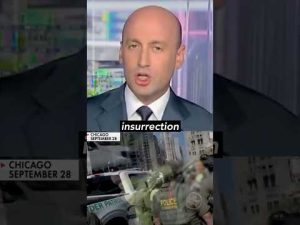In the wild world of American politics, the name Donald Trump seems to send some folks into a tizzy. Recently, former New York Mayor Rudy Giuliani joined the conversation to unpack what he sees as an obsession bordering on mania from those who oppose the former president. In his view, this relentless fixation has morphed into something more concerning that can only be described as a profound disconnect from reality. As Giuliani chuckled about the absurdity he witnesses, he couldn’t help but highlight that some folks might warrant a psychological evaluation if their reactions were examined under a microscope.
Giuliani shared a flashback to 2020, where he consulted two psychiatrists on Biden’s mental state. While the discussion may have started with the other side, they concluded that the fervor against Trump could easily be classified as a form of mental illness. The intensity of this animosity, he argued, could even be dangerous. He compared the threats he’s received from this group to the more traditional confrontations he’s faced in his storied political career. It seems that the modern political battlefield has shifted from those who oppose crime bosses or terrorists to those who firmly believe their hatred for Trump is justified, even if it steps over the line of rational thought.
Now, in classic Giuliani style, a detour brought the conversation to his beloved city, New York. The upcoming mayoral election was the main event, and current Mayor Eric Adams recently endorsed the disgraced former governor, Andrew Cuomo. In a twist of fate, Giuliani shifted gears to endorse Curtis Sliwa, a Republican candidate he’s supported for years. To Giuliani, Sliwa embodies the spirit of New York, and he’s not just a name on the ballot; he has a history of heroics. From his work navigating the dangers of city life to his international outreach helping at-risk youth, Sliwa seems to encapsulate the qualities that New York needs in its leadership.
Despite Adams’ recent support for Cuomo, Giuliani remarked that if the two can split the Democrat vote, Sliwa might just pull off a miraculous victory. His enthusiasm for Sliwa, whom he likened to a younger version of himself, reflects a belief in people who are not just ambitious, but ready, willing, and able to tackle the challenges of the city. With the election looming, Giuliani’s excitement remains palpable, suggesting that New Yorkers should prepare for a potential political twist.
On a more somber note, Giuliani turned his attention to the troubling trend of political violence that seems to seep into everyday discourse. He pointed to a recent incident involving Congresswoman Yolanda Jones, who made headlines with her startling rhetorical flourish about “slashing the necks” of Republicans. To Giuliani, such statements are not just alarming but also an indication of a larger sickness infecting the political landscape. He lamented that civil discourse is being overshadowed by open calls for violence, making it hard to engage in meaningful conversations about differing viewpoints.
As Giuliani pulled together these threads, it became clear that he sees these moments as both troubling and revealing. The stark contrast between the ideals of the past and the rhetoric of today shows a deeper crisis, one that may need more than just a firm political hand to rectify. In this captured moment of political theater, Giuliani stands, waving the flag for Sliwa and rallying against the chaos, hoping to steer the ship of New York back toward calmer waters. The stage is set, and as the lights dim on the current political act, one can only wonder what antics the next chapter will unveil.







